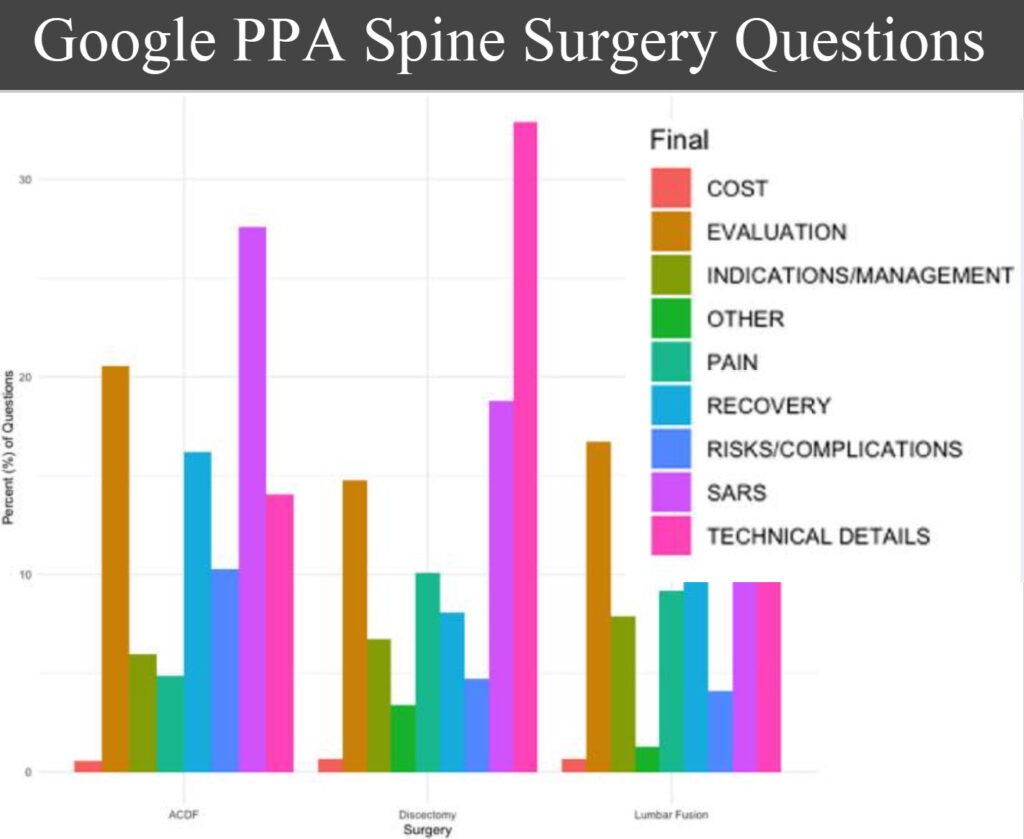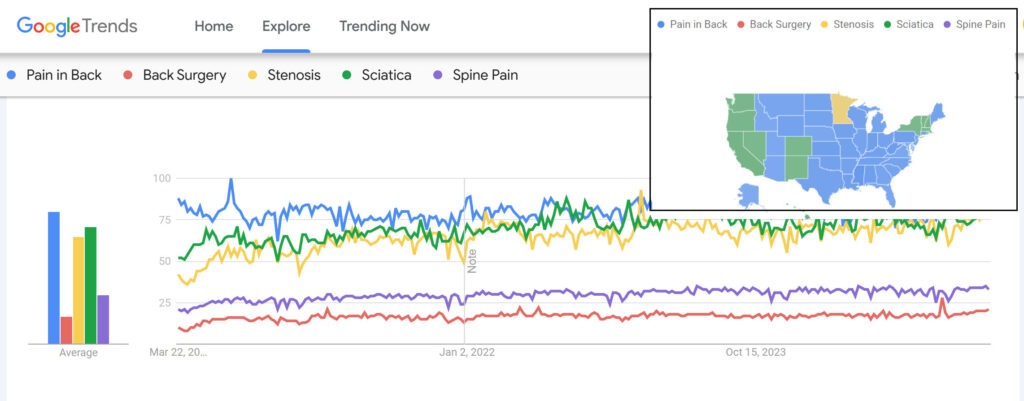Google’s People Also Ask (PAA) feature is a dynamic search result component that displays a list of related questions users frequently ask about a topic. This feature employs machine learning algorithms to present users with prevalent queries and corresponding answers.
The Google People Also Ask feature was used to create a study on Spine Surgery. The study titled “Modern Internet Search Analytics and Spine: What Are Patients Asking and Reading Online?” examines the most frequently asked questions (FAQs) related to common spine surgeries using the Google’s “People Also Ask” (PAA).
The analysis revealed that patients commonly seek information on the following topics:
- Surgical Procedures: Inquiries about the nature of specific spine surgeries, their indications, and the steps involved.
- Recovery and Rehabilitation: Questions regarding post-operative recovery timelines, rehabilitation processes, and expected outcomes.
- Risks and Complications: Concerns about potential complications, side effects, and overall safety of spine surgeries.
- Cost and Insurance: Queries related to the financial aspects of spine surgery, including costs and insurance coverage.
This study underscores the importance of healthcare providers being aware of the information patients are accessing online. By understanding common patient concerns and questions, clinicians can better address these topics during consultations, ensuring patients receive accurate and comprehensive information.
Utilizing tools like Google’s PAA feature can offer valuable insights into patient interests and information-seeking behaviors. This knowledge enables healthcare professionals to tailor their communication strategies, ultimately enhancing patient education and engagement.
Google’s People Also Ask (PAA) feature
Google’s People Also Ask (PAA) feature typically appears as a collapsible box within the search engine results page (SERP), often near the top or middle of the results. Each question in the PAA box expands to reveal a short answer, often extracted from a web page, along with a link to the source.
To access the Google “People Also Ask” (PAA) feature, simply perform a search on Google for any topic, and you will usually see a box labeled “People Also Ask” appear on the search results page, typically near the top, displaying a list of related questions and answers related to your initial search query; you can click on any question to expand and see the answer provided by Google based on relevant webpages
How PAA Works
Google uses machine learning and natural language processing to identify commonly asked questions and curate answers based on its understanding of user intent. It selects content from high-quality web pages to generate concise, relevant answers.
Why PAA Matters
- Insight into User Behavior:
PAA reveals what people are most curious about when searching a topic, making it a valuable tool for businesses, researchers, and content creators. - Enhanced Visibility:
Pages featured in PAA results often receive increased traffic due to their prominent placement in search results. - Improved User Experience:
The feature helps users quickly access reliable, concise information without needing to sift through multiple pages.
Applications in Healthcare
In healthcare, PAA is particularly useful for identifying patient concerns. By analyzing the questions in the PAA box for terms like “spinal surgery,” healthcare providers can understand what patients frequently ask, such as:
- Recovery timelines.
- Risks and complications.
- Costs and insurance coverage.
This insight helps healthcare professionals tailor their consultations, educational materials, and online content to better meet patient needs.
Also see Google Trends on Spine Surgery
for an interactive display of how people are searching for information related to Spine Surgery



